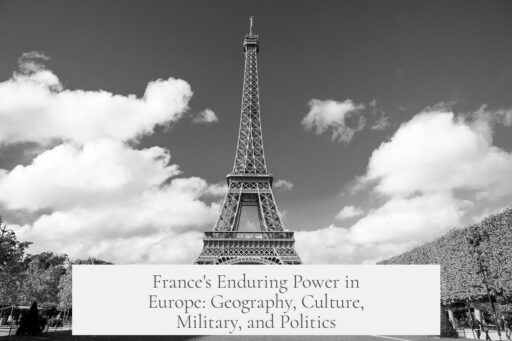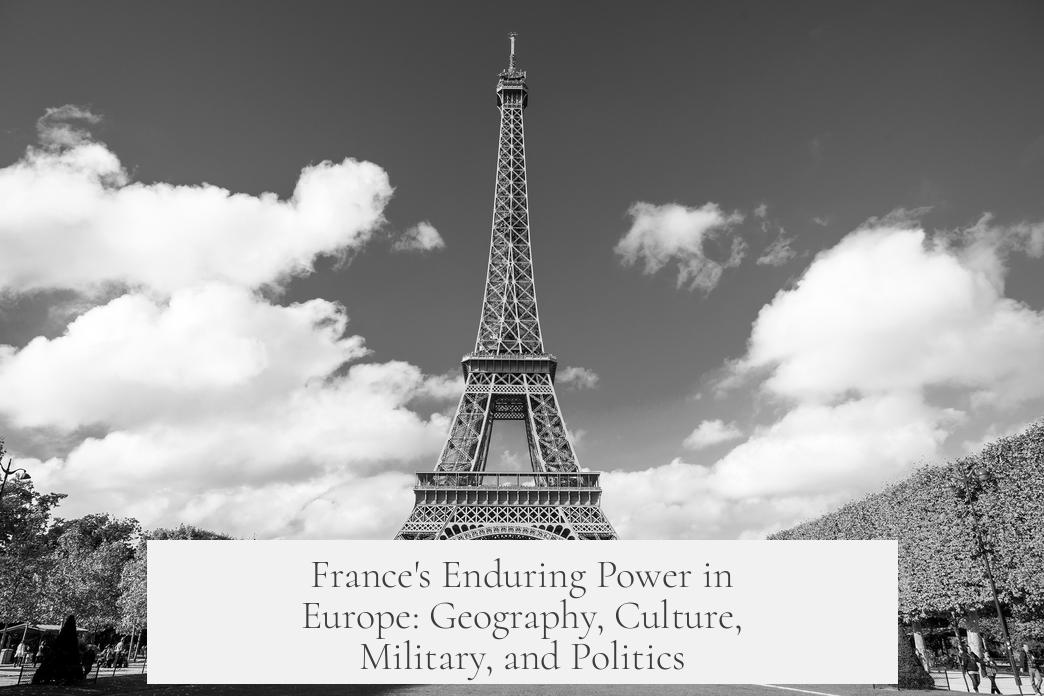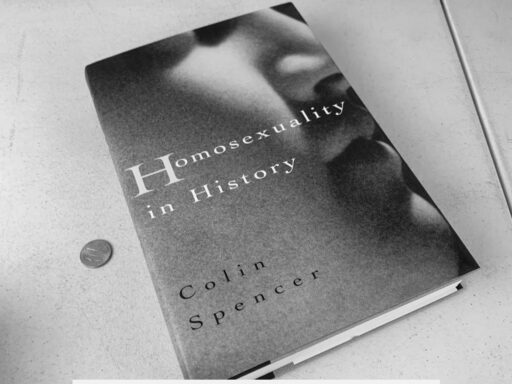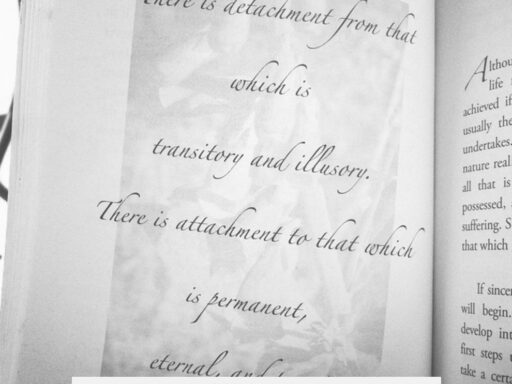France has always been a great power in Europe due to its strategic geographic location, large population, defined rivalries, rich culture, military innovation, and early political centralization. These factors combined to create a resilient and influential state.
France’s geography gives it natural advantages. It is protected by the Pyrenees mountains in the south, which separate it from Spain. This barrier shields France from southern invasions and political turmoil, as Spain was historically occupied with conflicts against Muslim forces. To the southeast, the Alps separate France from Italy’s divided city states and Habsburg territories. These mountains provide physical protection and limit the invasions that France faced.
Along the northeast borders lie the Rhine River and the Netherlands. The Rhine acts as a cultural and political boundary between French and German lands. The Netherlands historically offered France a buffer zone, especially when it was part of Habsburg possessions. This gave France valuable time to consolidate its territory while its rivals were distracted by conflicts, particularly the prolonged Dutch-Spanish wars.
France benefits from a comparatively large population. Around the time of the French Revolution, the population was approximately 20-22 million, surpassing major powers like Britain and Austria. This demographic size provided France with economic strength through higher tax revenues and allowed the country to field large and effective armies. The population base supported sustained military campaigns and economic growth in challenging times.
France’s key adversaries were the Habsburgs and England/Britain, each dominating competing spheres of influence. The Habsburg rivalry was primarily dynastic and about control of territories. England posed a maritime threat, while France excelled as a continental land power with one of Europe’s strongest armies. This balance meant France focused on land dominance and avoided costly naval battles where Britain reigned supreme.
Culturally, France achieved exceptional influence. French became the diplomatic language of Europe and was widely adopted by European elites. Prominent leaders like Frederick the Great of Prussia and Catherine the Great of Russia spoke French fluently, integrating French culture into their courts. French literary and social norms shaped European aristocracy, reinforcing France’s status not just by war, but through prestige and soft power.
France also had a record of military success and innovation. Its armies earned a reputation for bravery, offensive tactics, and high morale, often described as *élan*. After setbacks like the Seven Years War, France encouraged strategic reforms rather than merely imitating other powers. Military theorists debated new approaches, leading to effective campaigns during the Revolutionary Wars. France’s ability to learn from defeat and innovate contributed to its enduring influence.
The formation of the French nation-state was critical to its greatness. France was one of Europe’s earliest countries to centralize power effectively. Louis XIV’s reign marked the consolidation of royal authority and the transformation from a feudal society to a centralized monarchy. Paris became the political and cultural center, uniting people under a common identity. The Hundred Years War fostered national consciousness, defining France as a distinct political and cultural unit ruled by the French crown alone.
Overall, France’s combination of its defensible location, large population, balanced rivalries, cultural leadership, military prowess, and political unity explains its longstanding position as a European great power. It transformed from a war-torn land into a centralized and culturally dominant nation, sustaining influence for centuries.
- Natural geographic barriers protected France and allowed internal consolidation.
- A large population gave economic and military advantages.
- Balanced rivalries shaped focus on land power versus naval adversaries.
- French culture and language became Europe’s diplomatic standard.
- Military innovation and resilient tactics maintained France’s war success.
- Political centralization under Louis XIV and revolutionary reforms unified the nation.
- These elements combined to establish France as a leading European power.
Why has France Always Been a Great Power in Europe?
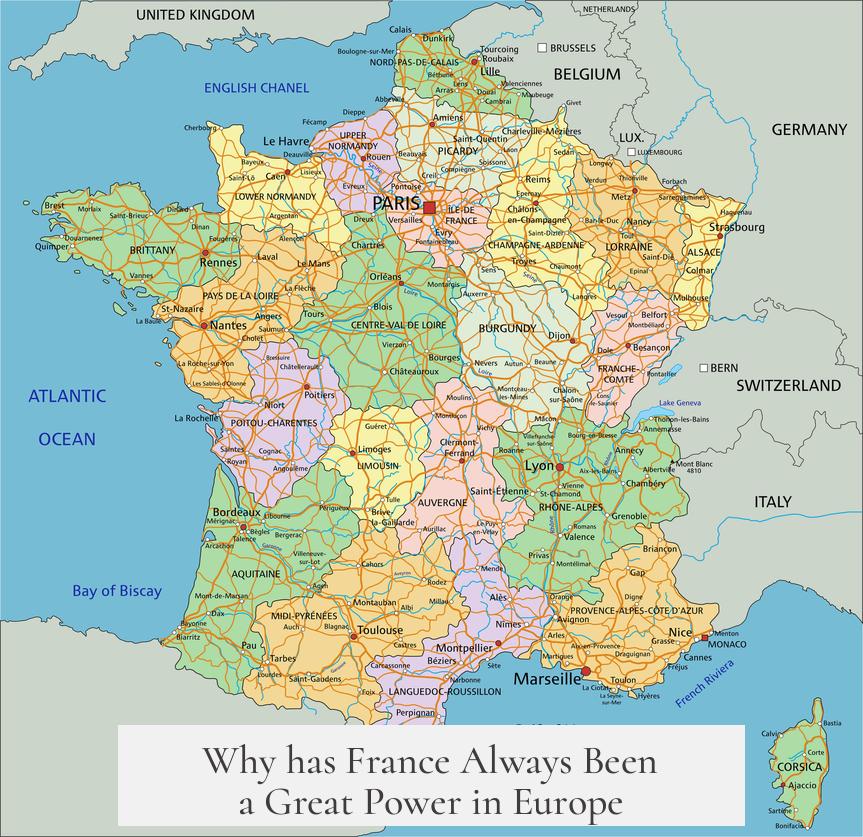
Simply put, France has always been a great power in Europe due to its unbeatable mix of geography, population size, military prowess, rich culture, internal unity, and cleverly balanced rivalries. Let’s dive a bit deeper, because just saying “it’s France” is probably not enough to settle the debate.
Imagine a chessboard on the European continent. France sits right in the middle, making the most of every piece it has—natural barriers acting like pawns in defense, a massive population funding the strategy, and a king—in this case, a centralized nation—thinking four moves ahead.
The Geographic Golden Ticket
First off, location matters. France isn’t some open book for every troop marching through Europe. It’s surrounded by giant natural defenses—the Pyrenees mountains block Spain in the south like a massive fortress wall, and the Alps to the southeast act as another giant barricade keeping Italy’s patchwork of city-states and Habsburg domains at bay.
Not convinced? Consider the Rhine River and the neighboring Netherlands to the northeast. These form a cultural and political dividing line between French and German-speaking lands—think of it as a built-in moat for French power. The Rhine isn’t just water; it’s a statement: “This is French turf, no trespassing.”
And speaking of the Netherlands—when it was a Habsburg possession, Spain’s extended wars with the Dutch distracted France’s traditional enemies, allowing it breathing space to focus inward and tighten national unity. It’s almost like France had the luxury of a timeout while others bickered.
Population Powerhouse
Land mass matters, but more importantly, the people on that land fuel a nation’s strength. France boasted a population of roughly 20 to 22 million by the time of the French Revolution—a lot more than Britain’s 13 million or Austria’s 18 million. That’s a hefty demographic advantage when you’re counting soldiers or taxpayers.
Larger populations mean more mouths to feed but also more hands to work, more minds to innovate, and significantly, more taxes for the royal coffers. This economic freedom translates into bigger armies, better infrastructure, and sustained influence. To put it plainly: size does matter.
The Enemy Dynamic: A Balanced Rivalry
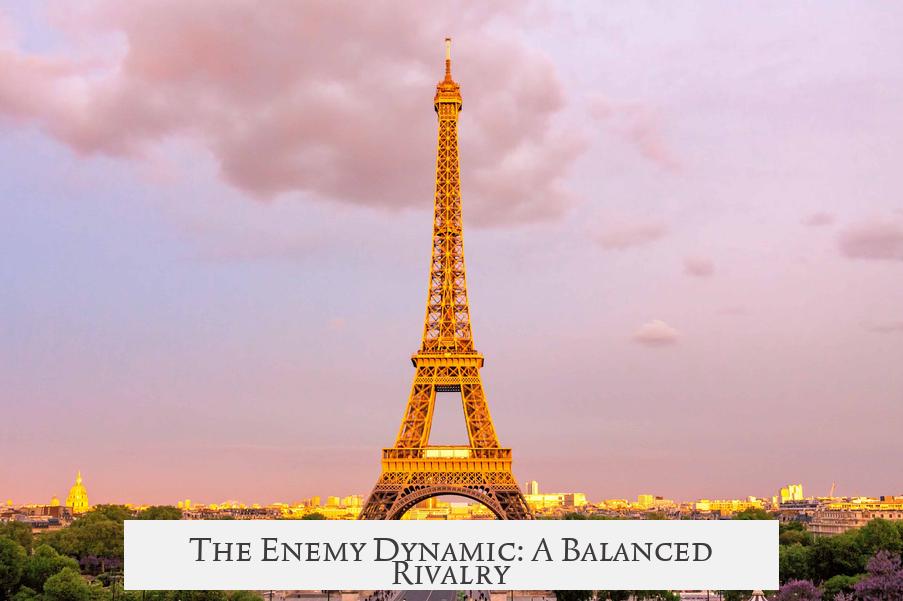
Who’s the enemy? France’s rivals were well known and effectively balanced in power. The Habsburg dynasty loomed as a dynastic, land-based threat, pitted against France often during wars like the Spanish Succession. Meanwhile, England, later Britain, challenged France’s ambitions on the seas.
It’s a classic matchup: France dominates on land with one of Europe’s best armies, while Britain flexes its naval muscle. Britain never quite had the manpower to risk long continental wars, and France couldn’t out-fight the British Navy on the water—so each had their stronghold, keeping a fascinating balance of power in check.
Culture: The Invisible Empire
French power isn’t just about land or armies; it sneaks in through culture and language. France managed to position itself as Europe’s cultural heavyweight, with French becoming the diplomatic language at the courts of Frederick the Great, Catherine the Great, and pretty much everyone who mattered.
If you find yourself reading a Russian novel sprinkled with French phrases, you’re witnessing the ‘Frenchness’ that permeated even the farthest corners of Europe. French wasn’t imposed by conquest but was embraced as a mark of sophistication—a classic soft power move before soft power became a buzzword.
Military Innovation and Victories: The Art of War
Before you roll your eyes at the cliché “cheese-eating surrender monkeys” bit—France has an impressive war record. It fought and defended itself smartly, learning from defeats and innovating strategies rather than blindly copying others (looking at you, Frederick of Prussia).
Between the Seven Years War and the Revolutionary Wars, French military thinkers engaged in serious discussions, developing unique doctrines focused on offensive tactics and morale. That famous French “élan,” or fighting spirit, is rooted in this legacy of bravery and aggression on the battlefield.
France’s survival in its roughly current shape through centuries of conflict and shifting alliances speaks volumes about its military skill and diplomatic savvy combined.
Political Centralization: The Nation-State Pioneer
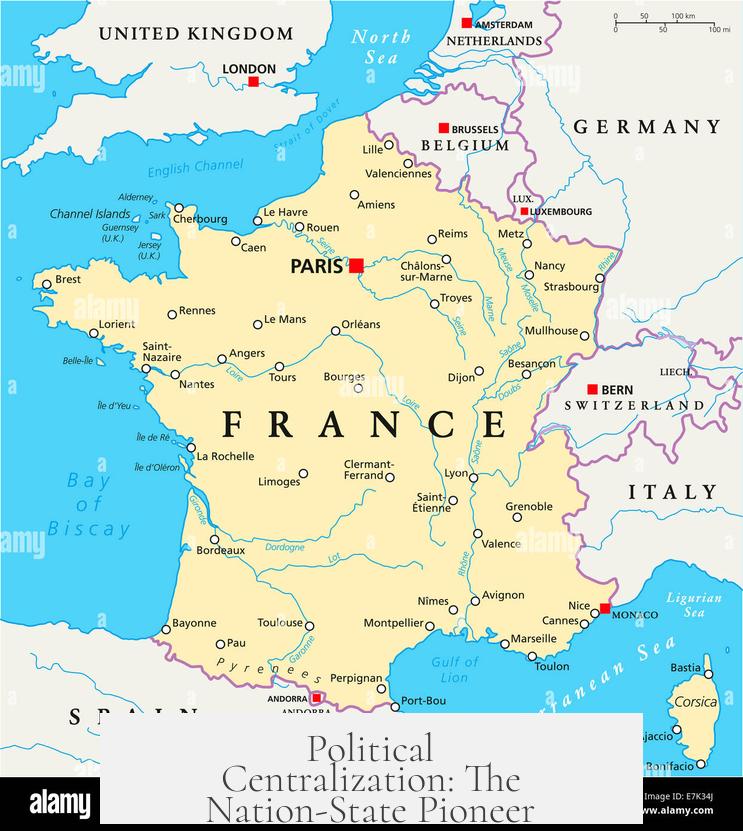
France didn’t just stumble into greatness; it built it from within. Among the major European powers, France was one of the earliest states to centralize authority. Louis XIV’s reign was a turning point—he smashed the feudal system and concentrated power under the king, with Versailles as a symbol of centralized might and culture.
Later, the Revolutionary period rose from this groundwork, uniting the country politically and culturally under Paris, transforming the idea of France from a collection of territories to a nation-state. Geoffrey Parker, a respected historian, argues France was arguably the first true nation-state in Europe, forged in unity against common enemies like England.
This sense of nationhood gave France a distinct edge. It wasn’t just a patchwork kingdom—it was a single entity, proudly ruled by the French crown and defined by a shared identity.
Bringing It All Together: The Unique Recipe for Power
So, what’s behind France’s long-standing role as a European powerhouse? The answer isn’t a simple one-dimensional story. It’s a rich mix of strategic geography, a robust and growing population, balanced rivalries keeping enemies in check, cultural influence, innovative military tactics, and pioneering political centralization.
From the devastating Hundred Years War that hammered out a sense of French identity, to the cultural dominance that turned European courts into French salons, to the battlefield strategies that made French armies feared and respected—France’s “great power” status isn’t luck. It’s a carefully layered, living history.
What lessons can modern nations take from this? Possibly this: Power isn’t just about might; it’s about smart use of resources, culture, and unity. France’s story highlights how marrying geography and population advantages with strong political structures and cultural influence can carve out a lasting role on the world stage.
Want to sound like you know your history at your next social gathering? Just remember: France became a great power not because it invaded everyone (well, not all the time), but because it stood firm behind mountains, rivers, and a fiercely centralized government. It recruited millions from its vast population, spoke the language that made diplomacy smoother, and fought smart battles backed by bold ideas.
So next time someone drops that cliché about France being quick to surrender, politely correct them. The story of France’s greatness is anything but simple—it’s a tale of resilience, genius, and a hefty dose of tactical win.
